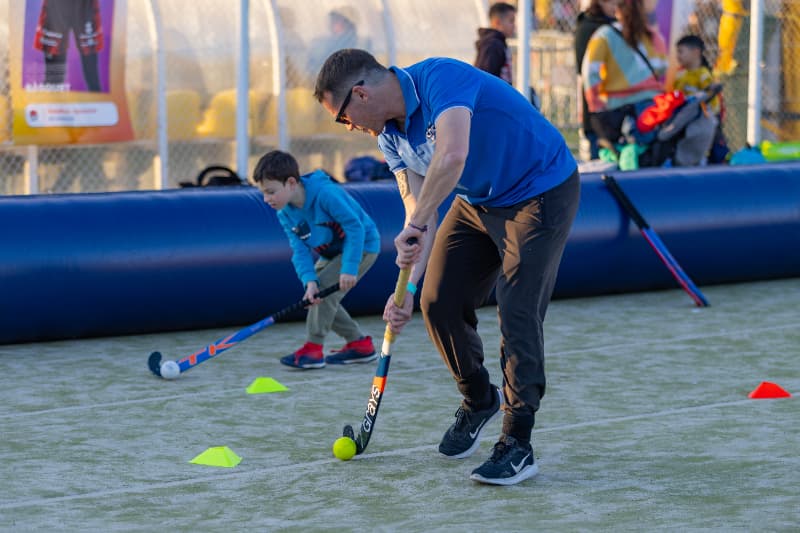Leading by Example
The Leadership Journey of Captains Caro Falcone and Willy Enos

A successful team is built upon several essential components that make up a team, each contributing in it’s own way: the coach, who helps train the team; the fans, who encourage the team; the players, who create the team; and the captain, who embodies all of these roles and more. \n The two captains of the first team, Caro Falcone, and Willy Enos have taken on the all-encompassing role and demanding responsibilities of leadership, guiding their teammates both on and off the field. \n
Because of the responsibilities this role demands, it’s important to consider the characteristics of all potential captains, as some may embody these captain characteristics more than others. For Caro, a good captain should possess “humility, good leadership, good communication, and above all, empathy.”
“I believe that one of the characteristics a captain must have is commitment, not only to the team and staff but also to the club. We’re not only representing the team but the club itself,” Willy said.
However, regardless of how well one embodies the traits of an effective captain, the role itself can still prove to be a challenge. Especially in times of difficult practices or discouraging games, the captain must remain a positive and encouraging presence, despite their own emotions.
“For one to keep that positivity, they must stay positive themselves, and many times, I find myself unable to stay positive in difficult situations,” Caro said. “But I think it’s very important to know how to encourage the team, motivate them, and know, depending on the situation and moment, what phrases to use to lift them up.”

While Willy agrees, he also believes a captain must display commitment.
This ability to uplift and inspire the team doesn’t just stop at staying positive in tough times; it’s also about recognizing each player’s strengths and encouraging them to contribute in their own way. For Willy, focusing on the positive qualities of each player is key to maintaining team positivity.
“I think one way to maintain peace and a good training environment during critical moments is to always look for the positive qualities in each player and bring them out. Everyone has their way of contributing to the team, and you have to exploit those positive traits,” Willy said.
And of course, leading by example is also vital.
“Leading by example is key—not just talking but acting. If I want commitment from the team, I need to make sure the team knows I’m giving 100%. I have to be the first one to chase the ball. I need to be the first one in front of the team. As captain, I need to be the one leading,” Willy said.

For both Willy and Caro, the role of captain has been a journey of personal growth, not just as a player but as a person. \n Caro believes that leadership has helped her grow in confidence and communication, allowing her to grow as a leader while staying true to herself. \n “I try not to let the role of captain change me as a person or with my teammates. But, over time, after so many years as captain here at Catalonia and in other teams, I think it has given me self-confidence and belief in myself that I can lead a team, establish good communication with people, and in the end, grow in different environments.” Caro said. \n
Willy’s perspective focuses on understanding his limits, while continually learning from his experiences. \n “I think I’ve also gotten to know myself better. I’ve learned where my limits are. Sometimes I go beyond those limits, and of course, that’s when I make mistakes, but it’s part of the learning process. It’s part of growing,” Willy said. “I don’t think you ever stop learning.” \n The leadership provided by both Willy and Caro hasfostered success and a positive environment for the CHC club. And as Willy would say, there is still room to keep learning. \n
Related articles
Discover more
Latest articles